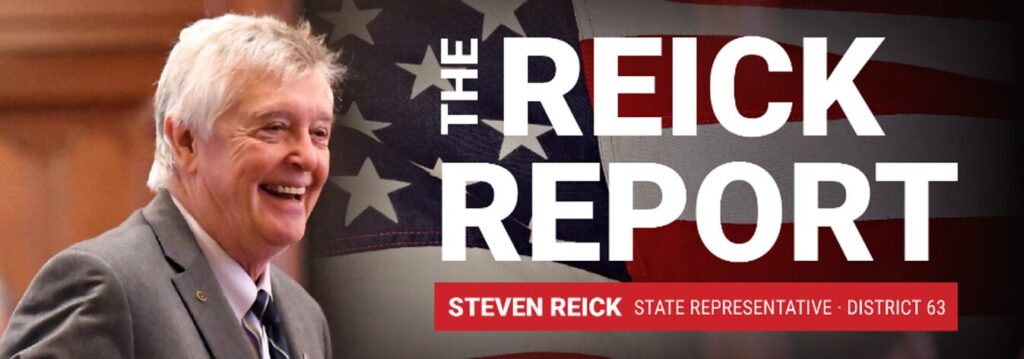From State Rep. Steve Reick:

Budget Woes are Back Again
As state legislators in the minority party have been warning for years, the gravy train of “free” taxpayer money from the federal government is over, yet the appetite for spending by the majority in Springfield continues to grow.
Over the past few years, the majority party in Springfield has passed state budgets with spending growth that has outpaced state revenue growth leading up to the inevitable budget deficit that two government agencies are warning about now.
There are two budget-focused agencies within state government –
- one that sits within the legislative branch (Commission on Government Forecasting and Accountability or COGFA) and.
- .one within the executive branch (Governor’s Office of Management and Budget or GOMB). This dual system allows for better checks and balances and accountability.
While COGFA and GOMB don’t always agree on the expected revenue, spending, or other aspects of the state’s finances, they do agree that Illinois is facing some major financial challenges this year.
In their most recent report, COGFA highlights the ongoing fiscal challenges Illinois is facing.
While some revenue streams slightly exceeded their previous forecasts, overall, the state’s “General Funds receipts through the first third of FY 2025 are now down $502 million as compared to the first four months” of last year.
This is not good news for this year and the news gets worse for next year, as COGFA anticipates a deficit next year of $3.173 billion, driven by pension and healthcare costs. They then project that at current spending levels, there will be worsening deficits through FY30.
GOMB similarly published its annual economic forecast report that showed warning signs of Illinois’ impending financial challenges.
The report notes that the “state economy is showing signs of slowing in areas such as employment and consumer spending. Prices for rent, energy, and food have all increased year-over-year, at both the state and national level. Salaries and average wages have increased but not kept pace with rising costs.”
The report highlights a few inconvenient truths:
- Our productivity is slowing
- Our labor market lags behind the national average
- State revenue growth is slowing
Now that we have the data, it is time to make decisions.
When faced with a budget deficit, there are three options on the menu for policy makers –
- cut spending,
- increase taxes, and
- pursue economic growth policies.
Too often, those in power in Springfield have chosen only to increase taxes as a way to dig out of our financial hole.
It hasn’t worked. Our growing pension obligations, coupled with the insatiable appetite for new programs and new spending in the legislature led us here and we cannot tax our way out of it.
We cannot double down on the dangerous policies that brought us to this point.
I’m calling on my colleagues to do the hard work of looking at each government program to find where we are maximizing our taxpayer dollars and where we can find cuts.
We need to pursue policies that will spur economic growth to reverse the decline we are experiencing. And I’m calling on my colleagues to pledge that they will not raise taxes on Illinois families to patch up their budget deficit.
